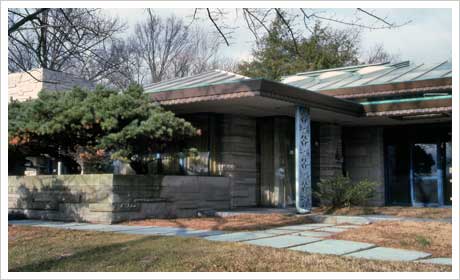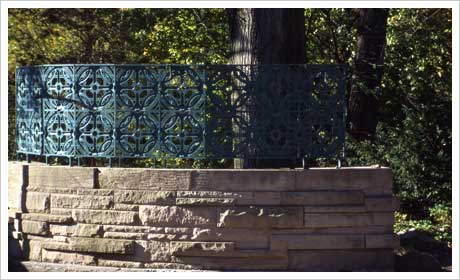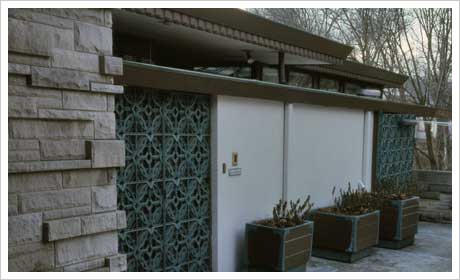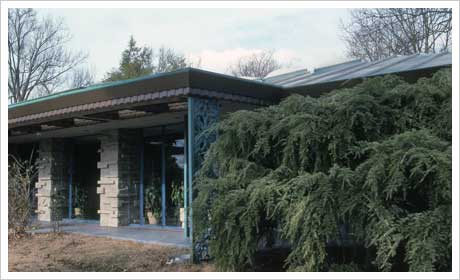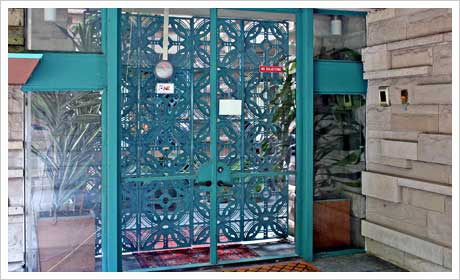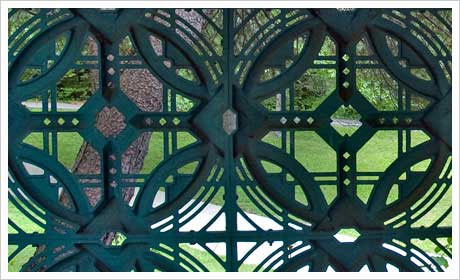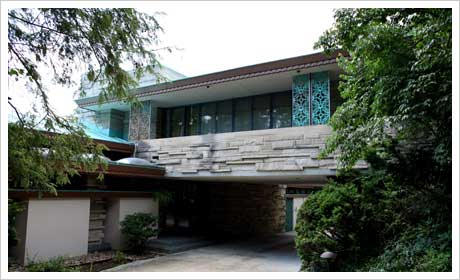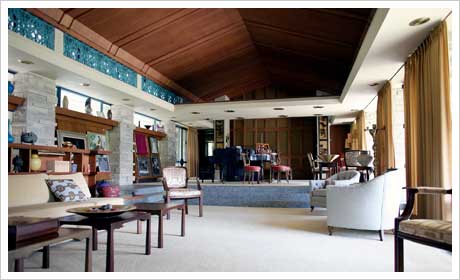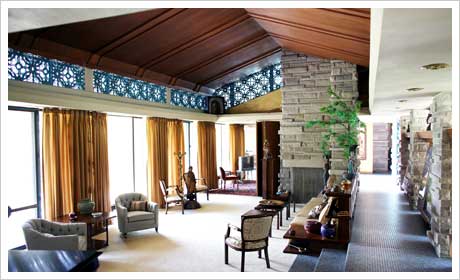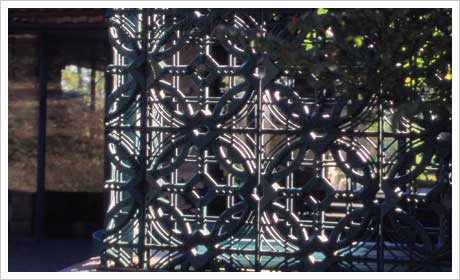Provenance | J. Ralph and Patricia Corbett House
2501 Grandin Road, Cincinnati, OH, 1959-present
Designer: John deKoven Hill (American, 1920-96)
Manufacturer: Schmidt Ornamental Iron Works (Evanston, IL)
The cast aluminum modular panels were originally designed in 1959 by John deKoven Hill for the J. Ralph and Patricia Corbett House. Hill was one of Frank Lloyd Wright’s chief design assistants at Taliesin, and was involved in many of the decorations and furnishings on buildings executed in the final years of Wright’s life. He remained with Taliesin until his death.
For the Corbett House commission Hill created a perforated modular aluminum square which was used in many applications throughout the house, including a horizontal clerestory window cover, a screen to enclose a projecting porch, and a vertical screen at the entry. The house was published as House Beautiful magazine’s 1960 Pace Setter for the February 1960 issue. Hill was at the time the architectural editor of the magazine.
Although the design looks much earlier and suggests the work of Louis Sullivan, it was an entirely new design created by Hill for the Corbett project. Many of the decorative details of the later Wright and Taliesin projects reflected earlier creative influences of Sullivan as well as Wright’s own early work.
In 1960, the panel design was recast for use as fence panels for four new adjoining townhouses designed by architect Harry Weese for the Hyde Park Redevelopment project near the University of Chicago (1503-09 East 56th Street, Chicago, IL). The fence was removed in 2013 and we are fortunate to have several of these panels in the Eron Johnson Antiques's collection.

